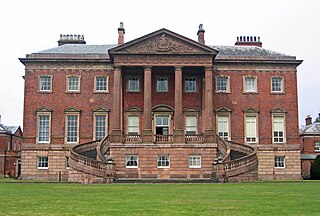
Tabley House is an English country house in Tabley Inferior, some 3 kilometres (1.9 mi) to the west of the town of Knutsford, Cheshire. The house is recorded in the National Heritage List for England as a designated Grade I listed building. It was built between 1761 and 1769 for Sir Peter Byrne Leicester, to replace the nearby Tabley Old Hall, and was designed by John Carr. The Tabley House Collection exists as an exhibition showcased by the University of Manchester.

Jacobs Well is a mediaeval Grade I listed building in the Micklegate area of York, in England. It is the church hall of Holy Trinity, Micklegate.
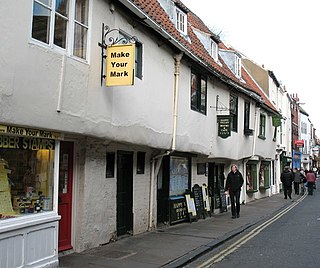
Lady Row, also known as Our Lady's Row, is a mediaeval Grade I listed building on Goodramgate in York, England. Historic England describe the structure as "some of the earliest urban vernacular building surviving in England".

Sir Thomas Herbert's House, often known as Herbert House, is a Grade I listed building in York, dating from the 16th and 17th centuries.
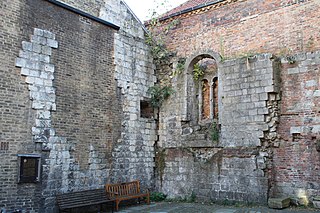
The Norman House is a grade I listed building and scheduled monument in the city centre of York, in England. Although in ruins, it has been described as "York's oldest house", dating from the 12th century.
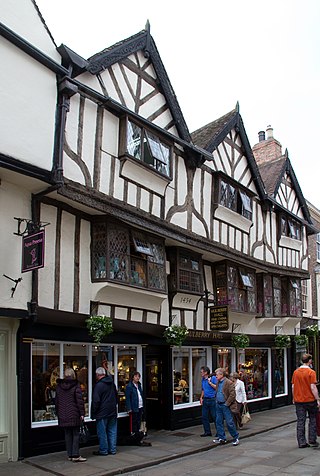
Mulberry Hall is a grade II* listed building on Stonegate, in the city centre of York, in England.

64 and 66 Low Petergate is a grade II* listed building, in the city centre of York, in England.
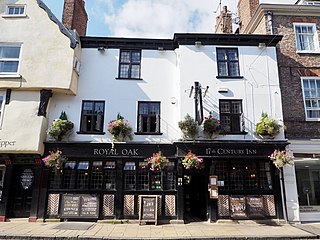
The Royal Oak is a pub in the city centre of York, in England.
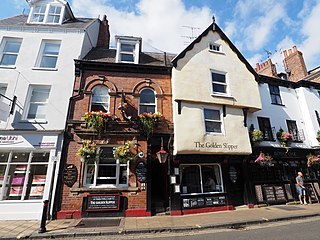
The Golden Slipper is a Grade II listed pub in the city centre of York, England.
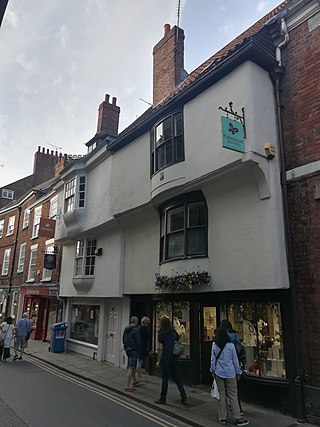
56–60 Low Petergate is a grade II* listed building in the city centre of York, in England.

54, 56, and 58 Stonegate is a grade II* listed mediaeval terrace in the city centre of York, in England.

33–35 High Petergate is a Mediaeval building in the city centre of York, in England.

The Dutch House is a historic house, lying on Ogleforth, in the city centre of York, in England.
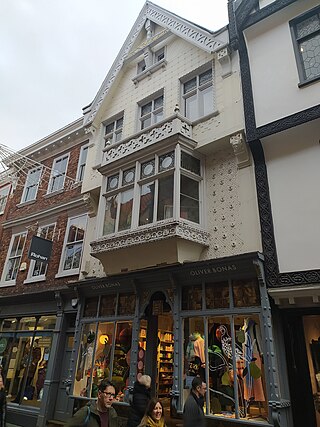
35 Stonegate is a grade II* listed building in the city centre of York, in England.
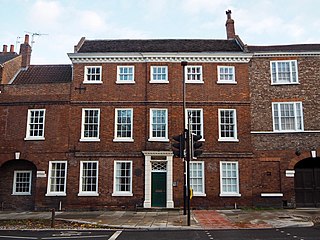
Middleton House is a grade II* listed building on Monkgate, immediately east of the city centre of York in England.

The York County Savings Bank Building is a historic building in the city centre of York, in England.
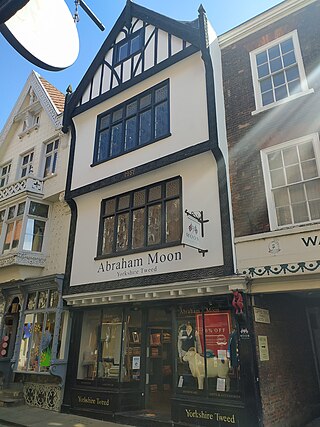
33 Stonegate is a historic building in the city centre of York, in England.

28–32 Coppergate is a historic building in the city centre of York, in England.

43 Stonegate is a historic, Grade II* listed building in the city centre of York, in England.

8 Fossgate is a historic building in the city centre of York, in England.




















